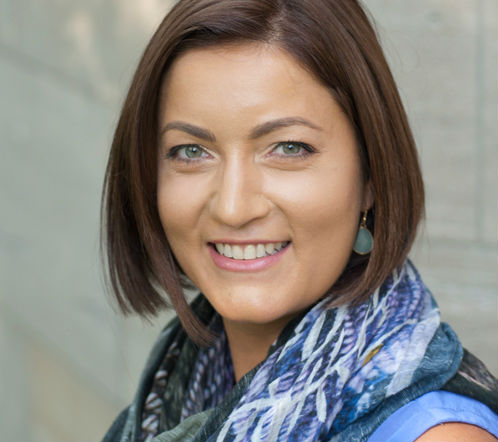Canada 2020’s Senior Associate Reva Seth spoke to Dr. Danielle Martin about her new book Better Now: Six Big Ideas To Improve Health Care For All Canadians ahead of her sold out talk at the Telfer School of Business in Ottawa on Wednesday, Jan. 18, 2017.

Reva Seth: Danielle, congratulations on an incredibly interesting and important book – the more Canadians can join in a shared conversation on what the future of our country’s health care should look like – the better. Six Big Ideas is the perfect way to kick off a dialogue on health care in 2017.
So let’s start with the basics, what are your 6 Big Ideas in this book?
Dr. Martin: All the big ideas are about making changes to our health care system that will improve health without spending a whole lot more money, and without giving up on the value of fairness that underpins Medicare.
Canadians believe in the fundamental principle that access to health care should be based on need, not ability to pay, and we should be proud that we have built a system around that principle. But to deliver on the promise of universal health care, we need to do better. There are real challenges in the system, so I propose 6 things we can do together to meet those challenges:
- Big Idea 1 is about ensuring relationship-based primary health care for every Canadian
- Big Idea 2 is focused on bringing prescription drugs under Medicare
- Big Idea 3 talks about reducing unnecessary tests and interventions in health care
- Big Idea 4 is about reorganizing the way we deliver health care to reduce wait times and improve quality
- Big Idea 5 talks about implementing a basic income guarantee for basic health
- Big Idea 6 looks at how we can scale up successful solutions across the country so that all Canadians will benefit from innovation in health care.
Reva Seth: I have to go to straight to Big Idea 2 -that we still don’t cover the cost of prescription drugs for Canadians, a dangerous reality given that more and more Canadians are working freelance, contract or are self-employed. How did we get here?
Dr. Martin: Well, the exclusion of prescription drugs from medicare is really an accident of history.
When medicare was developed in the 1950s and 1960s, physicians provided the bulk of health care and hospitals were the typical care setting – now things are very different.
As more and more Canadians age, we’re seeing that they want to live and stay well at home. They want to receive treatment during the day when it’s needed, but they want to manage chronic conditions at home, not in the hospital.
This also applies to Canadians in other age groups. For example, we know that nearly one–third of Canadian adults and youth live with at least one chronic condition.
Canadians believe in the principle that access to health care should be based on need, not ability to pay. That principle needs to be extended beyond doctors and hospitals to include universal access to a publicly-funded formulary of essential medicines.
Reva Seth: It has been reported that 94% of Canadians say national health care is a point of pride – which suggests that with 2017 also being our country’s 150th, there is untapped interest in getting more Canadians engaged in shaping the future of health care. What can those of us who are not in the medical profession do to support the recommendations you suggest?
Dr. Martin: The kind of change will be driven not only by politicians but by regular Canadians and their families, and by people like me who work in the health care system. It’s going to take a concerted effort by doctors, nurses and other providers to change the way we do our work in order to deliver better, more consistent care.
Patients also have an important role to play, and I talk about some of the ways they can participate in the book. I have also put a toolkit on my website for people who want to take action: www.6bigideas.ca
Reva Seth: How about medical schools? What are your thoughts on the role (and current effectiveness) of how medical schools are used to implement these changes? What would you like to see more of?
Dr. Martin: Medical education has changed a lot since I was in medical school. We are increasingly training our students and residents to see that they have a role in the system, which is so important. We can’t just go to work as doctors, see the patients on the list, and go home.
Physicians need to take a leadership role in solving health system challenges – indeed every one of the ideas in this book requires commitment and participation on the part of the medical profession. I think we are beginning to understand how to prepare our trainees for that shifting role, but there is always more to do.
Much of that links to a culture change that has to happen within the medical profession so that we don’t see ourselves as outside the system but as embedded in it.
Reva Seth: I’m always up for a health hack or short cut so I have to ask as a Doctor – and as a super busy (and effective person) – I have to ask: what’s the one health hack or daily must do you recommend.”
Dr. Martin: Brush your teeth. Your future self will thank you!
Reva Seth: Great advice Danielle, that’s a lesson still lost on my kids.
